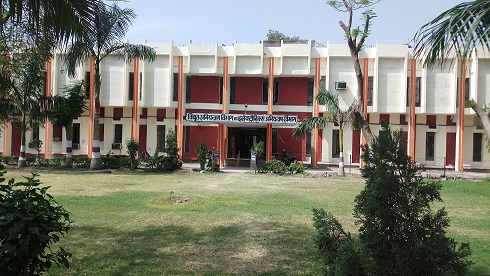
The Department of Electronics Engineering was established in 1990. It has committed Faculty members for taking care of academic and other requirements of the students. It offers B. Tech. in Electronics Engineering with intake of 45 students and M. Tech. in Electronics and Communication Engineering with intake of 18 students. In addition for Ph.D. programme there are two seats under QIP and one seat under TEQIP II as research cum teacher fellow. At present there are seven Ph.D. scholars under QIP/TEQIP. Besides this the Department is also offering regular Ph.D. programme as per HBTU ordinances. The Department has successfully implemented many sponsored projects funded by World Bank and Swiss Govt, AICTE, DST, DRDO and TEQIP. The Board of Studies of the Department regularly updates the syllabus to meet the requirements of Industry and Academia. The Department is having well equipped labs and software for Virtual Instrumentation, VLSI Design, PCB Design, Signal Processing, Optical Networks etc.. Various extracurricular activities are regularly organized by the students under the aegis of Association of Electronics Engineers for their overall development. The students of the Department are well placed in Govt. Sector, Private sector, MNCs, Civil Services, Engineering Services, Academics and R & D. A good number of students also go for higher education in IISc, IITs, IIMs and in reputed foreign universities for masters and doctoral programs.
The Faculty of the Department is well qualified and associated with Institutes of repute like IITs, IISc, NITs and has published several papers in referred Journals and Conferences of National and Internationalrepute. The Faculty members of the Department are continuously involved in R & D activities with their research students. Several National Level Seminars, Conferences, Faculty Development Programmes, Expert Lectures, Workshops etc. have been organized by the Department. The Department is also growing in terms of Infrastructure. Various grants have been received from AKTU, TEQIP and RUSA (National Higher Education Mission) MHRD for equipment and separate building of the Department.
Department of Electronics Engineering aims to deliver Technical Education in the field of Electronics and Communication Engineering, for producing Engineers and Technologists who are happy, healthy and competent professionals, motivated to serve the society through research & innovation.
1. To educate and train the students with state-of-the-art in Electronics and Communication Engineering.
2. To prepare the students who are fit for meeting the requirements and challenges of the Industry right at the time of their graduation by evolving a sustainable Industry-University interaction system for this.
3. To upgrade the teaching standards through continued efforts toward improvement of the qualification and expertise of the teachers as well as supporting staff.
4. To create awareness amongst the students towards socio environmental technologies by offering related courses and organizing seminars/workshops on these topics in the university and by encouraging participation in similar activities at other places.
5. To expand research and development activities in the frontier areas related to Electronics and Communication.
6. To include the aspect of integration of environmental balance and human values in the curriculum.
7. To provide academic support to others technical institutions at state & national level through the process of networking.
8. To start social service programs like education for masses, particularly using the enhanced means of communication.
Engineering Graduates will be able to:
1. Engineering knowledge: Apply the knowledge of mathematics, science, engineeringfundamentals, and an engineering specialization to the solution of complex engineering problems.
2. Problem analysis: Identify, formulate, review research literature, and analyze complexengineering problems reaching substantiated conclusions using first principles of mathematics, natural sciences, and engineering sciences.
3. Design/development of solutions: Design solutions for complex engineering problems anddesign system components or processes that meet the specified needs with appropriate consideration for the public health and safety, and the cultural, societal, and environmental considerations.
4. Conduct investigations of complex problems: Use research-based knowledge and researchmethods including design of experiments, analysis and interpretation of data, and synthesis of the information to provide valid conclusions.
5. Modern tool usage: Create, select, and apply appropriate techniques, resources, and modernengineering and IT tools including prediction and modelling to complex engineering activities with an understanding of the limitations.
6. The engineer and society:Apply reasoning informed by the contextual knowledge to assesssocietal, health, safety, legal and cultural issues and the consequent responsibilities relevant to the professional engineering practice.
7. Environment and sustainability: Understand the impact of the professional engineering solutionsin societal and environmental contexts, and demonstrate the knowledge of, and need for sustainable development.
8. Ethics: Apply ethical principles and commit to professional ethics and responsibilities and norms ofthe engineering practice.
9. Individual and team work:Function effectively as an individual, and as a member or leader indiverse teams, and in multidisciplinary settings.
10. Communication: Communicate effectively on complex engineering activities with the engineeringcommunity and with society at large, such as, being able to comprehend and write effective reports and design documentation, make effective presentations, and give and receive clear instructions.
11. Project management and finance: Demonstrate knowledge and understanding of theengineering and management principles and apply these to one’s own work, as a member and leader in a team, to manage projects and in multidisciplinary environments.
12. Life-long learning: Recognize the need for, and have the preparation and ability to engage inindependent and life-long learning in the broadest context of technological change.
Program graduates, within three years from their graduation will
PEO 1: have knowledge of basic and applied sciences, so as to apply the necessary competence for technically sound, economically feasible and socially acceptable solutions of real life complex engineering problems.
PEO 2: be fit for meeting the requirements and challenges of industries, research and academic institutions both at the national and International level, by applying expertise gained in area of electronics and communication engineering.
PEO 3: be professionally competent with excellent communication and management skills along with being enterprising professionals and responsible citizens capable of delivering their services individually as well as in a collaborative framework.
PSO 1: Students should be able to apply the acquired knowledge of core Electronics and Communication Engineering courses in the analysis, design, and solution of Real Life Complex Engineering Problems in teamwork environment.
PSO 2: Student should have ability to absorb and apply modern electronic software and hardware for design and analysis of complex engineering problems.
PhD courses should be taken by students in consultation with their thesis supervisors.
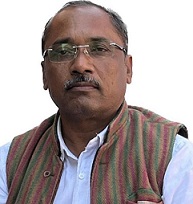
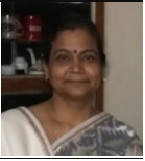
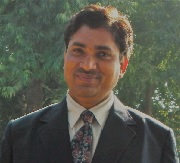
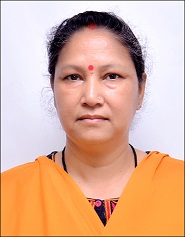
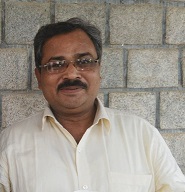
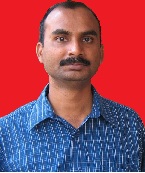
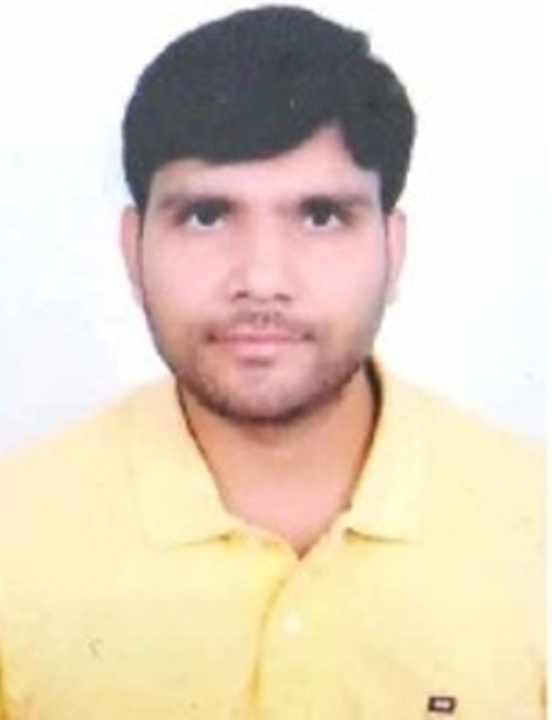
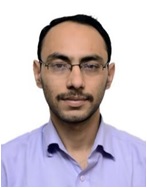
| Name | Qualification | Designation | Mobile No. | Email Id | Profile |
|---|---|---|---|---|---|
| Dr. Preeti Agarwal Mittal | PhD | Guest Faculty | 8090619619 | [email protected] | View Profile |
| Dr. Dinesh Kumar Kotary | PhD | Guest Faculty | 988271214 | [email protected] | View Profile |
| Dr. Deo Chandra Jaiswal | PhD | Guest Faculty | 8127676553 | [email protected] | View Profile |
View Faculty List 2021-22
View Faculty List 2020-21
View Faculty List 2019-20
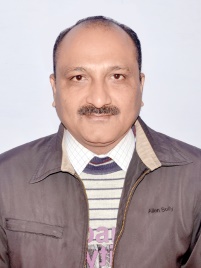
Technical Assistant
[email protected]
7081300541
| 01 Outsource staff for office work |
Design and implementation of systems
View UG Student List 2021-22
View UG Student List 2020-21
View uG Student List 2019-20
View PG Student List 2021-22
View PG Student List 2020-21
View Geo tagged images of all laboratories
ELECTRONICS LABORATORY
This laboratory explores the design, construction, and debugging of analog electronic circuits, investigate the performance characteristics of semiconductor devices (diodes, BJTs and MOSFETs) and functional analog building blocks, including single stage amplifiers, op amps, small audio amplifier, filters. Lectures and laboratory projects of the course are devoted to the design, implementation of a project in an environment similar to that of engineering design in industry.
Related Courses: Solid State Devices and Circuits, Digital Electronics
Faculty In charge: Dr. Kumar Gaurav
Technical Assistant: Mr. Irfan Mohammad
Location: West Wing, Ground Floor
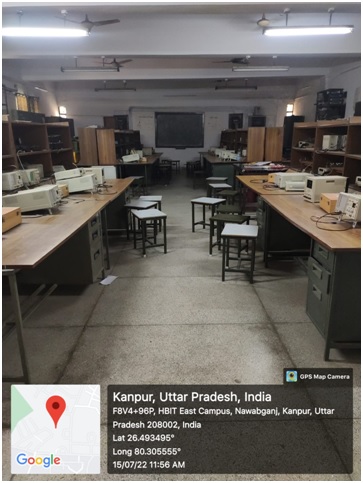
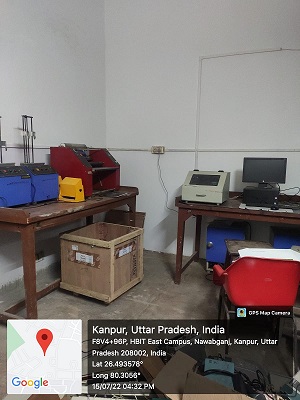
This lab is fully equipped with hardware & software tools including transformer and coil winding machine. Single Sided PCB of Analog & Digital circuits can be designed in this Lab. In order to design Layout of complex circuits Express PCB software is available. A spin coater system is available to make a uniform & thin coating of chemicals on a glass epoxy sheet.
A dry film laminator facility is also available which is helpful in single sided PCB designing. Along with above facilities, all the basic facility for PCB designing is available in this Lab. The transformer winding facility is also available in this lab. This Lab is useful for faculty, staff and students for their research work / higher study & completion of project work.
Related Courses: PCB design Lab and Projects
Faculty In charge: Dr. Kumar Gaurav
Technical Assistant: Mr. Irfan Mohammad
Location: West Wing, Ground Floor
The Microprocessor Lab is utilized for understanding the internal organization of basic and advanced microprocessors. In this lab, the students are trained for attaining the objectives of mathematical operations and interfacings through Assembly Language Programs which employs instruction sets of processors. In addition to it, the students also educated regarding the interfacing of the processor with various peripheral devices. Microprocessor laboratory is equipped with several modern microprocessor kits and interfacing devices. The Faculties provide in depth knowledge of writing and executing assembly language programs to the students so that they can solve the real world problems.
Related Courses: Microprocessor, Digital Signal Processing, VLSI Design
Faculty In charge: Prof. Krishna Raj
Technical Assistant: Mr. Raj Kumar
Location: West Wing, First Floor
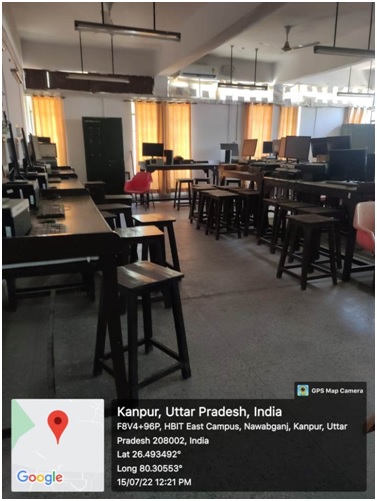
In this laboratory, the students are exposed with programming and simulation side of Electronics Engineering. Here, several advanced and updated software including Lab View, MATLAB, Proteus, OptiSim and others are available for helping students in better understanding of concepts of Electronics and Communication Engineering. In this lab, the real time interfacing of equipped with computer may also be made with the help of DAQ Cards. The laboratory is also equipped with several personal computers connected with LAN along with Printing facility.
Related Courses: Analog Communication, Digital Communication, VLSI Design, Optical Fiber Communication
Faculty In charge: Prof. Ashutosh Singh
Technical Assistant: Mr. Raj Kumar
Location: West Wing, First Floor
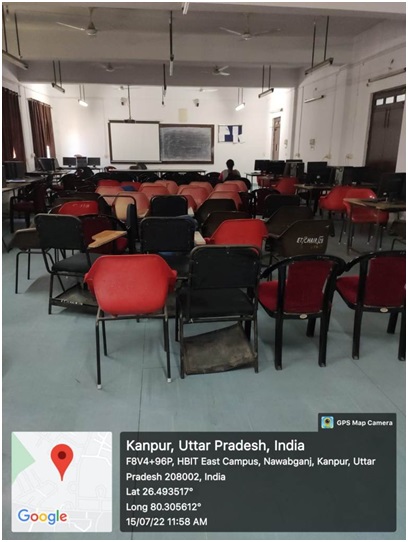
Without communication, no information may be processed. In this laboratory, the practical exposure of Analog and digital communication is provided to students through experiments performed on kits and components in association with state of art. The experiments performed in this lab help in enhancing the knowledge of students about various Communication techniques including AM, FM, PM, DSB-SC, SSB-SC, PAM, PPM, PWM, PCM, ASK, FSK, PSK etc. They are also provided with the exposure of modern communication techniques which includes CDMA, GSM and others. The lab is equipped with communication System Trainer Kits, Microwave & Antenna Trainer Kits, X-Band Microwave Kit, Fiber Optics Trainer Kit, CTV Trainer with Video Camera & Monitors O/E & E/O Converters, Optical Attenuator and Optical Power Meter etc.
RELATED COURSES: Analog Integrated Circuits, Analog Communication, Digital Communication, Optical Fiber Communication
Faculty In charge: Prof. A. K. Shankhwar
Technical Assistant: Mr. Raj Kumar
Location: East Wing, First Floor
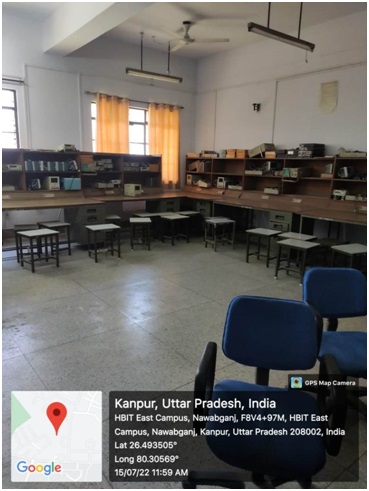
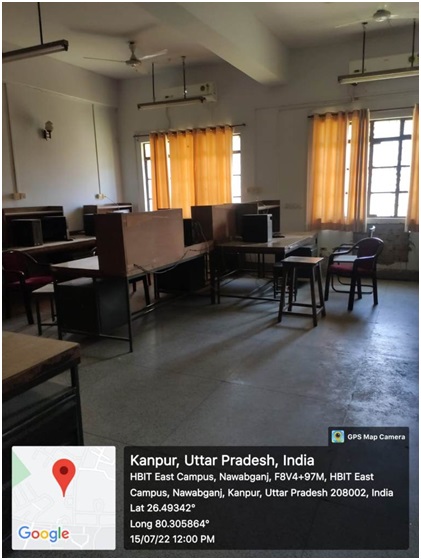
All the labs are well equipped with basic equipped having Digital Storage Oscilloscopes, Power Supplies, Function Generators, Component Development Boards etc.. Apart from basic equipped, the Department is also having specialized equipped. Some of them are as follows. State of the art Oscilloscopes
• Facilities for developing PCBs
• Microwave Benches
• Optical Fiber Kits and Trainers
• Antenna Trainer
• FPGA Kits
• Vector Network Analyzer
• Work Stations with latest Configurations
• Communication Kits
• CDMA Trainer,
• Microprocessors Kits
• DSP Kits
• Instrumentation Kits
SOFTWARE
• Lab View (Virtual Instrumentation Software with DAQ Cards)
• OptiSim (Optical Communication Link and Network Simulator),
• Proteus (Circuit Simulation Software)
• Active HDL (Logic Level Simulator)
• AIM SPICE (Circuit Level Simulator)
• Tanner Tool (Semiconductor Device Design Simulator)
• Optimization Software
• MATLAB
View Geo tagged images of departmental facilities
The Electronics Engineering Department is having well equipped laboratories with most modern infrastructure to cater the present day need of the industries. The department is facilitated with all the necessary laboratories, for grooming the research and development skills of Engineering students. The various Departmental Laboratories are Electronics Laboratory, Electronic Workshop and PCB Laboratory, Microprocessor Laboratory, Simulation Laboratory, Communication Laboratory and Research Laboratory. These Laboratories are in fact the areas where students are not only performing experiments related to various practical aspects of the concepts but also make their dream true in terms of innovative research. The details of laboratories are as follows.
Related Courses: Analog Integrated Circuits Lab, Analog Communication Lab, Digital Communication, Optical Fiber Communication
Faculty In charge: Dr. A. K. Shankhwar
Technical Assistant: Mr. Raj Kumar
Location: East Wing, First Floor
Related Courses: Devices and Circuits, Digital Electronics
Faculty In charge: Dr. Manoj Kumar Shukla
Technical Assistant: Mr. Israr Mohammad
Location: West Wing, Ground Floor
Related Courses: Microprocessor, Digital Signal Processing, VLSI Design
Faculty In charge: Ashutosh Singh
Technical Assistant: Mr. Raj Kumar
Location: West Wing, First Floor>
Related Courses: PCB design Lab and Projects
Faculty In charge: Dr. Manoj Kumar Shukla
Technical Assistant: Mr. Israr Mohammad
Location: West Wing, Ground Floor
Related Courses: Devices and Circuits, Digital Electronics, Analog Communication, Digital Communication, VLSI Design, Optical Fiber Communication
Faculty In charge: Ashutosh Singh
Technical Assistant: Mr. Raj Kumar
Location: West Wing, First Floor
Related Courses: Utilized by M. Tech. and Ph.D. students for their research activities
Faculty In charge: Ashutosh Singh
Technical Assistant: Mr. Raj Kumar
Location: East Wing, First Floor
All the labs are well equipped with basic equipped having Digital Storage Oscilloscopes, Power Supplies, Function Generators, Component Development Boards etc.. Apart from basic equipped, the Department is also having specialized equipped. Some of them are as follows.
The basic and advance applications of electronics components are part and parcel of life of an Electronics Engineer. This lab provides the wide exposure of concepts and applications of solid state devices and circuits to the students. Students conduct experiments in this Lab so as to become acquainted with Digital Storage Oscilloscopes, Cathode-ray oscilloscope, and Signal generators along with other instruments including Audio Generator, Function Generators, Digital Logic Trainer etc. The lab is also equipped with Trainer Kits, Multi O/P Power Supply, Frequency counter, Digital Trainer, LCRQ Meters, etc.
The Digital Electronics Lab is a place for students to understand the concepts of the Boolean logic along with applications of digital integrated circuits. With this ability, students learn the basics and advances of digital electronics along with study of various digital blocks including encoders and decoders, multiplexers and de-multiplexers, flip-flops, counters and shift registers, parity generators and checkers etc. The students are promoted to perform experiments on component level so that they may understand the component level designing of digital circuits.
Without communication, no information may be processed. In this laboratory, the practical exposure of Analog and digital communication is provided to students through experiments performed on kits and components in association with state of art. The experiments performed in this lab help in enhancing the knowledge of students about various Communication techniques including AM, FM, PM, DSB-SC, SSB-SC, PAM, PPM, PWM, PCM, ASK, FSK, PSK etc. They are also provided with the exposure of modern communication techniques which includes CDMA, GSM and others. The lab is equipped with communication System Trainer Kits, Microwave & Antenna Trainer Kits, X-Band Microwave Kit, Fiber Optics Trainer Kit, CTV Trainer with Video Camera & Monitors O/E & E/O Converters, Optical Attenuator and Optical Power Meter etc.
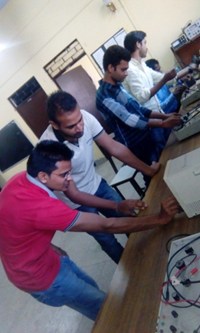
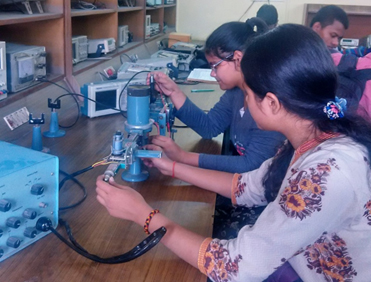
This lab provides understanding about fundamentals and application of microwave engineering, transmission of microwave signals, and principles underlying microwave devices and equipped to measure various parameters. The laboratory is adequately equipped with Klystron tubes, Gunn diodes, Klystron power supplies, Modulators, Directional couplers, Tees, Circulators, Isolators and VSWR meters.
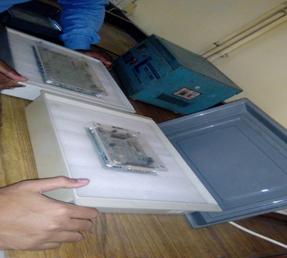
The Digital Signal Processing Laboratory is used to introduce the basic principles, methods, and applications of digital signal processing, to explore its algorithmic, computational, and programming aspects of DSP hardware for real-time signal processing applications. In this laboratory student generates the ability to program digital signal processing algorithms in C and MATLAB, including the design, implementation, and real-time operation of digital filters, and applications of the Fast Fourier Transforms.
| Sl.No. | Name of the Scheme/Project/ Endowments/Chairs |
Name of the Principal Investigator /Co Investigator(if applicable) |
Name of the Funding agency | Type (Government/Non-Government) |
Department | Year of Award | Funds provided(INR in lakhs) | Duration of the project |
|---|---|---|---|---|---|---|---|---|
| 1 | MHRD | Dr. Krishna Raj | MHRD | Government | Electronics Engineering | 2017 | 31.47 | 2017-2018 |
| 2 | MHRD Scheme for Design Innovation Centre | Dr. Krishna Raj | MHRD Scheme for Design Innovation Centre | Government | Electronics Engineering | 2017 | 7.03 | 2017 |
| 3 | TEQIP-III /AICTE | TEQIP-III /AICTE | TEQIP-III /AICTE | Government | Electronics Engineering | 2019 | 17.8 | 1.75 years (From 18/06/2019 to 31/03/2021) |
| 4 | TEQIP-III /AICTE | Dr. Suman Kumar Mitra, Prof. Krishna Raj, Dr. N. B. Balamurugan, Dr. Rupam Goswami | TEQIP-III /AICTE | Government | Electronics Engineering | 2019 | 19.37 | 18th June 2019 to 31st March 2021 |
| 5 | Kanpur Smart city limited | Dr. Krishna Raj | Kanpur Smart city limited | Government | Electronics Engineering | 2021 | More than 6 lakhs | 2020-21 |
View achievements of the department
Journels : View department journal list
Book Chapter: View Book Chapter
View workshop conducted in the department
View conference conducted in the department
YouTube link of 5-Days Online National Level FDP – cum – STTP
YouTube link of 02-Days Webinar on “ MATLAB for signal processing”
YouTube link of 01-Days Webinar on “Lets Crack the GATE”
FDP & WEBINAR BROCHURE
.
inauguration of Seminar on Design and Analysis of Electronics Systems : 13.08.2021